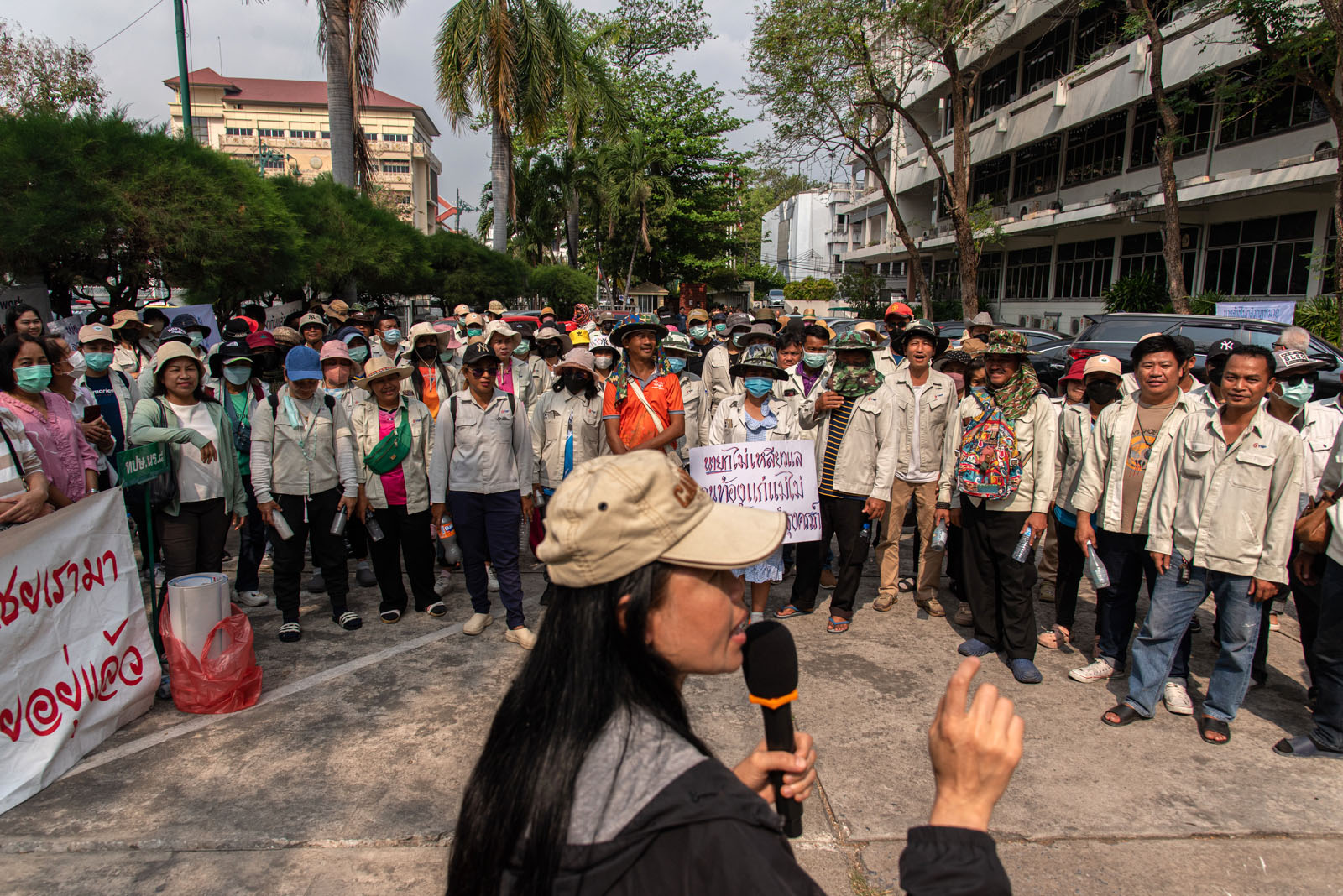This article was originally published on HaRDstories.
Bangkok — Lying on the ground of a makeshift camp facing the Government House, Malee Tewichan continues her third week of hunger strike with determination. Despite her pallor, she raises her fist with confidence to greet her comrades.
Malee, a trade union leader at Yarnapund auto parts factory, was the first to go on hunger strike after her unfair dismissal. Five female production workers later joined her peaceful protest, with hundreds of former coworkers rotating in support while struggling to earn income elsewhere.
Yarnapund, which supplies exhaust pipes and clutches to Japanese automakers Toyota and Isuzu, dismissed 859 workers without notice from its Samut Prakan plant east of Bangkok in November 2024. The company cited crushing debt from the automobile industry downturn and COVID-19 fallout as the reason.
“Production line workers like me and office staff have been dismissed,” said Malee, 42, in an interview with HaRDstories earlier in January at a protest in front of the factory. Today, she fainted due to her health and hot weather. She is too weak to give another interview. “It has been difficult for all of us.”
Government intervention needed
Wimon Huangtaison, 54, made a back-up plan after being laid off. Though he had hoped to work at the factory until retirement, he intended to start a small bamboo shoot farm at home using his anticipated 170,000 baht (about 5,000 USD) compensation.
Thai labour law entitles dismissed workers to severance based on years of service. However, Yarnapund has withheld 250 million baht (about 7.3 million USD) in compensation and reneged on promised instalment payments, citing bankruptcy.
“I already ordered tons of hay for my new farming project, but now I just left it sitting there,” said Wimon “Can we call what they’ve done to us as an economic crime?”
For four months, the worker from the northeastern region has survived on unemployment benefits alone. With his Social Security support ending in two months and most factories hiring only workers under 40, Wimon – like many of his colleagues – faces bleak employment prospects.

The Yarnapund workers urge government intervention – specifically, advancing their compensation while authorities pursue the company. Their demands stem from witnessing other factory workers wait years without receiving legally mandated payments.
The bureaucratic process, however, is complex. Eight different agencies must review and comment before cabinet approval.
“Coordinating between authorities takes time. I can’t promise an immediate decision,” labour minister secretary Ari Krainara told protesters earlier this week, committing only to raise their case at the April 9 cabinet meeting.
A pattern of corporate evasion
This problem extends beyond Yarnapund. Since 2019, at least 1,500 workers from three garment factories in Thailand have faced similar experiences to theYarnapund workers. One of them was the company Body Fashion, a Victoria Secret lingerie supplier, whose Malaysian employers had already fled the country with their equipment, leaving authorities unable to auction assets for worker compensation.
Together with automaker workers, they demand a preventive solution – setting up ‘Unfair Dismissal Risks Fund’ by having employers put money in advance when the business still operates. If any unfair dismissal occurs, the workers are guaranteed to be compensated.
This demand has garnered support from 103 trade union and labour organisations.
“Thailand needs to change the way we hold employers accountable. Getting compensation is the workers’ right without anyone having to go on hunger strike,” said Wimon “We hope to see no more unfairly dismissed workers have to do what we are doing.”
